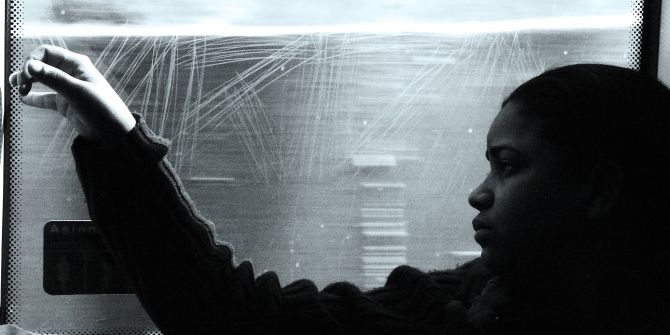By Jet Mates
Last week, when Dame Louise Casey’s long-awaited review into opportunity and integration was published, it struck a chord. I’m currently volunteering for the Afghanistan and Central Asian Association, a charity set up by refugee Dr. Nooralhaq Nasimi 16 years ago. The organisation’s motto is ‘to promote British values among the refugee community’, and in the work I’ve been doing it’s become all too clear just how difficult that is going to be.
The report’s conclusions that many ethnic minority communities are failing to integrate into British society are unfortunately a statement of the obvious for those working in the sector. It points the finger straight at the Government and its persistent failures, stating: “The problem has not been a lack of knowledge but a failure of collective, consistent and persistent will to do something about it or give it the priority it deserves at both a national and local level.” This has meant that there have become “pockets of mono-culture”, where wards of British cities have become densely populated by one particular ethnic group. The review has been criticised by some commentators for focusing so closely on Muslim communities, and while it’s true that similar residential concentrations are seen in some other groups, such as Polish and Roma populations, the majority are overwhelmingly Muslim. Dame Louise Casey had no qualms about admitting that she hasn’t shied away from putting the spotlight on this issue despite the potential to be branded not politically correct; “The very fact that we can almost not have that conversation is part of the problem,” she told Radio 4’s Today Programme on the 5th of December.
The implications for women in particular are a serious concern. The report found that due to cultural practices – such as the ‘first-generation every generation’ phenomenon, whereby many men in ethnic minority communities marrying abroad and bringing their wives to the UK – women in particular are failing to learn English and become integrated members of society. “Misogyny and patriarchy must come to an end,” Dame Louise Casey said. She said that confusion over how public institutions deal with cultural practices that lead to the marginalisation of women must be addressed, without those institutions being branded as racist or Islamophobic.
I interviewed Zuhra Bahman, who is spearheading the Zanan Women’s Project. She hosts monthly women’s workshops on a range of issues relating to Islam, radicalisation and assimilation. The purpose is to educate, inform, and empower women: making them aware of their rights, giving them the skills to challenge extremism, and giving them leadership training to improve their social and economic opportunities so that they can become active members of their local communities. I was interested to hear the thoughts of someone so deeply invested in, according to the review, the most marginalised members of British society. Did she think that report depicted accurately what was happening in Muslim communities? “It’s true what Casey said about men being more than happy to keep women in the position that they’re in. The men want to come home and have their housework done, they don’t like the idea of their wives going to work.”
Zuhra said that the biggest challenge she had in implementing the work she was doing was actually getting women to the sessions. “The biggest obstacle is that the husbands won’t permit them to seek out learning opportunities. The husbands act as their gate-keepers; a lot of the women that come here we had to go through their husbands to convince them. It’s an incredibly regressive way of doing things, but we don’t have a choice, it’s the only way we can reach out to these women and help them.” Zuhra told me that an initiative to try and target the men in the first place, and to inform them about the benefits of letting their wives attend the sessions, was a failure. “We spoke to more than 100 Afghan men, and only one, ONE man sent his wife to us! They regarded us with suspicion and contempt, saying things like, ‘What, you want our wives to be like you? Going out to work and leaving the children behind?’. These are the attitudes that we are dealing with.”
Zuhra said that the only women that came of their own accord were either from broken families as a result of divorce, or those from a highly-educated background. But the latter were few and far between. “Even well-educated women are being oppressed,” She went on, “We have one woman that was a professional back in Afghanistan. When she moved to the UK over ten years ago, she found that it’s commonplace here for the women to have to serve the needs of the men. Her husband was a political activist, so instead of being able to go and retrain to get her relevant qualifications, she had to host meetings, and cook food, and serve the men that her husband was engaging with.” Sadly shaking her head, Zuhra told me, “She’s nearer retirement age now, and she’s bitter, resentful of the opportunities that she’s been denied, of the life she could have had.”
It makes for grim listening. I wondered how many women that came to the sessions actually knew about and took advantage of their rights as UK citizens. “We live in a country with some of the most stringent equality legislation in the world, but these citizens living in our midst are not getting the benefit from it. Some of the women go to college for say, 3 hours a week to learn English. But because they’re not using in their daily lives they’re not improving. Their husbands say to us, look, they have lessons and we don’t have lessons and we can speak English. But that’s because the men are going to work, mixing with the outside world, they have to speak to people and be submerged in it. The women do the school run and that’s it.” Zuhra said that this has more far-reaching and damaging implications than first meets the eye. “The imbalance of authority in these families, where the children are going to school and speaking fluent English, has implications for radicalisation. The lack of authority can make the children look elsewhere for it. An undermined mother can feel powerless, but often the closer she tries to get to her children, the further they push away, as this is what the extremists teach them, that being close to your mother is weak.” There are also healthcare concerns. “Many of the women that come to our sessions want to learn English so they can have a bit of privacy, in terms of going to the doctor. They want to be able to discuss things like contraception and sexual health without their husband there acting as interpreter. And of course this leads to concern, not only that they aren’t having confidentiality with their healthcare practitioner, but also are they getting the treatment that they want, or that the husband wants?”
Speaking to Zuhra, it’s clear that these issues are widespread and deeply-ingrained in some of these societies. The problem is that these are embedded cultural practices. Dame Louise Casey has accused the Government of “ducking the issues” in regards to the treatment of women, due to fear of being perceived as Islamophobic. But surely no one in civilised Western society would say that misogyny must be tolerated because of tradition or religion? Surely there is no place for inequality of women in today’s modern Britain?
Understanding the reasons that these communities have become so annexed from central British society is key to tackling the issues. The report found that shared cultural and religious values were an element; naturally people are choosing to live amongst others from a similar background. Also in terms of immigration, people that move to the UK want to live near family members already resident here. However, anti-Muslim sentiment from other members of society cannot be ruled out as a contributing factor. Incidents of hate crime have risen drastically between 2015 and 2016, with an increase of 19%. It’s estimated that crimes that go unreported are more than 4 times that.
What role does the media have to play in public perception of ethnic minority communities? Cardiff University’s findings that decontextualisation, misinformation, and a preferred discourse of threat, fear and danger have a strong presence in British media cover of British Muslim’s is alarming when 64% of the population say that the knowledge they have about Islam they acquired from the media. The University of Birmingham found that media coverage of Muslim’s was overwhelmingly negative. Contributors to the Casey review reported that media portrayals of Muslims were contributing to the demonisation of British Muslims, and that generalisations were being made blaming them for terrorist acts. This has led not only to Muslim’s reporting distrust of media organisations, but also a sense of alienation and at times fear for safety. The anti-Muslim sentiment in the media has been exploited by extremists on both sides, both ‘Islamist’ and ‘far-right’ extremists, as they have a common goal in their extreme ideologies of peddling hatred and prejudice, and turning each respective side against the other. This vicious cycle of hatred and suspicion fuels the fire of segregation in British society.
While charities such as the ACAA and others run projects to try and improve education and integration, without a proper Government strategy to deal with the huge scale of this issue, it’s only likely to get worse. The number one recommendation of the report was that central Government should support a programme to help improve community cohesion. How they decide to implement this is yet to be seen, but failure to act will without a doubt reinforce the problems of segregation within the communities. On the recommended list of project criteria is ‘emancipating marginalised groups of women’; how will this goal be achieved without large scale attitudinal reform? The equally vague ‘promotion of English language’ recommendation shows just how much work there is to be done on getting some specific targets and projects in place. Sound bites and motivational rhetoric just won’t cut it; some serious interventions in all parts of our society are required.
 About the author: Jet is a political communications intern for the Afghanistan and Central Asian Association (ACAA), providing services to the refugee community.
About the author: Jet is a political communications intern for the Afghanistan and Central Asian Association (ACAA), providing services to the refugee community.





